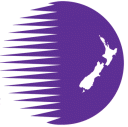From 18th June, 2020 partners and dependants of New Zealand citizens and residents who are ordinarily resident in New Zealand or hold a visa on the basis of their relationship will no longer need to travel with their New Zealand citizen or resident family member to be granted an exception to the border closure.
Other new exceptions:
- those arriving by sea where there is a compelling need for the vessel to travel to New Zealand
- extending the current exception for diplomats to include those taking up new posts in New Zealand
- new criteria for other essential (critical) workers.
Immigration New Zealand has now received 14,901 expressions of interest (EOI) from people who believe they meet exceptions to the border closure. Of the 14,440 EOIs decided so far, 2,832 meet the criteria and have been invited to apply for a visa.
Exceptions to the border closure
The Minister has announced changes to border exception criteria that come into effect next week.
The changes include:
- Partners and dependants of New Zealand citizens and residents who are ordinarily resident in New Zealand or hold a visa on the basis of their relationship will no longer need to travel with their New Zealand citizen or resident family member to be granted an exception
- A new maritime exception which will allow entry to those arriving by the sea where there is a compelling need for the vessel to travel to New Zealand
- Extending the current exception for diplomats to include those who are taking up new posts in New Zealand
- New criteria for ‘other essential worker’ exceptions and a new process for decisions which will now be made by Immigration New Zealand.
We are seeing emerging demand from employers and business for overseas workers. We need to balance this demand with our capacity for isolation and quarantine of new arrivals, and how we support a rapidly changing labour market.
INZ is working to implement these changes as quickly as possible. We expect the changes to partners, essential workers and diplomats will be in effect by the end of next week. The maritime changes will be in place later in June. The Government will continue to review the way we manage our border as New Zealand recovers from COVID-19.
The Government is working on a border strategy focused on the longer-term management of New Zealand’s people movement border settings, and exploring how to create a managed isolation system that could support further opening of New Zealand’s borders while continuing to effectively manage health risks from overseas arrivals.
Partners and dependants
Partners and dependants of New Zealand citizens and residents no longer need to travel together to be granted an entry exception.
The current requirement that family members need to be travelling with each other to New Zealand has created significant difficulties for separated families.
The exemption will now also enable entry for partners, dependent children, and legal guardians of New Zealand citizens and residents who are usually living in New Zealand or have a relationship based visa.
New maritime exception
A new maritime exception will allow entry to those arriving at the maritime border, where there is a compelling need for the vessel to travel to New Zealand. Compelling needs include vessels to be delivered for refit and repair, responding to emergency and humanitarian situations, crew changes, discharge of catch, or resupply. Most maritime journeys to New Zealand take more than 14 days, so crew and others will self-isolate on the route, and won’t impact New Zealand’s quarantine capacity. All arriving vessels will still be monitored and public health measures may still be required, for example, if the journey was shorter or there is illness on board.
This exception will not apply to cruise ships, which remain prohibited from entering New Zealand territory, or people traveling for leisure. Border restrictions will not apply to replacement cargo ship crew arriving in New Zealand by air and transferring straight to a cargo ship to leave New Zealand. This will help keep our shipping routes open.
Workers required for significant economic activities
New processes and criteria are being put in place for employers who need to bring in workers required for significant economic activities, without whom key projects will be delayed or the economy affected.
The Government has always allowed for exceptions in limited circumstances, decided with Ministerial discretion on a case-by-case basis. Demand is expected to increase as the economy starts up again, so these changes aim to provide greater certainty to migrants and businesses that believe they meet the ‘essential’ threshold.
Immigration New Zealand will now decide applications and clear criteria has been introduced, depending if the role is for the short or longer term. Applicants may include immediate family members.
Any employers granted an exception to bring in workers on these grounds must fund their managed isolation.
In some cases, such as with larger groups, they may need to work with the Ministry of Health to develop an alternative managed isolation plan.
Other Essential Workers
The threshold for entry for Other Essential Workers remains very high, aimed at high value workers on projects of national or regional significance, and businesses should ensure no alternative options are available before applying.
We are seeing emerging demand from employers and business for overseas workers. We need to balance this demand with our capacity for isolation and quarantine of new arrivals, and how we support a rapidly changing labour market.
This exception is aimed at high-value workers essential to time critical work on projects of national or regional significance.
Visa requirements still apply.
Businesses need to be taking active steps to employ and upskill New Zealand workers for all types of roles wherever possible.
We are working on establishing a joined up approach to labour market planning which will see our workforce, education and immigration systems working together to better meet differing and changing skills needs across the country.
Diplomatic exception
The diplomatic exception, which allows re-entry to those who normally live here, is being expanded to include diplomats taking up new posts in New Zealand.
How we treat foreign diplomats in New Zealand influences how our diplomats are treated overseas.
A functioning global diplomatic network is critical to New Zealand’s economic recovery, support for New Zealanders overseas, and our COVID-19 vaccine strategy.
Currently, only people who hold a New Zealand diplomatic visa and normally live here are allowed an entry exception on diplomatic grounds. New diplomatic and consular personnel, non-resident accredited diplomats, and diplomats on temporary assignments haven’t been able to enter. Some foreign missions now have vacant positions (including at Ambassadorial level) and staff have been unable to rotate because their replacements cannot enter New Zealand.
Skills Match Report process changes
From Monday 15 June 2020, the Ministry of Social Development (MSD) will change the Skills Match Report (SMR) process and the format of some SMRs. This is an interim process while MSD work on enhancements to the SMR process. It will impact what an employer is required to provide with an essential skills work visa application.
In situations where MSD are unable to refer suitable or trainable candidates, they will advise the employer of this via email. MSD will also advise the employer that they must advertise the vacancy on the new MSD jobs portal to obtain a SMR.
The advertising results report generated by the jobs portal and the email from MSD must be provided to INZ with Essential Skills work visa applications. See the attached “SMR – no MSD supply and advertised on MSD portal” document for more information.
The MSD job portal, which will go live on Monday, is available to a wider pool of candidates that those registered with MSD.
Due to the impacts of Covid-19, advertising the role on the new job portal is an important step to fully test the labour market and identify if there are New Zealanders available who may be suitable or trainable for the role.
In situations Where MSD are able to refer suitable or trainable candidates, they will provide the employer the existing SMR. This is the same as the existing process and the SMR document must be provided with the Essential Skills work visa application.
Update to further health information required email updates
INZ has made a small update to the wording of the automatic emails that applicants receive when further health information has required.
This wording reflects the impacts of COVID-19, as below:
Due to COVID-19, we strongly recommend that you contact an INZ panel physician to find out:
- if they carry out any immigration screening; and
- if you can schedule an appointment; and
- whether it’s safe for you to visit their clinic in person.
Short-term variation of conditions
As per our previous blog, any visa holder who received a short term variation of conditions (VOC) for essential services will revert back to their original visa conditions at 11.59pm on Wednesday 24 June 2020.
This was a temporary measure in response to COVID-19. INZ will stop accepting requests for short term variations for essential services on Thursday 18 June 2020.
If a worker who received a short term VOC wishes to continue in their new role, they will need to apply for a new visa or a substantive variation of conditions as appropriate. Visa requirements must be met.
Visa holders have been proactively informed about this condition expiry.



